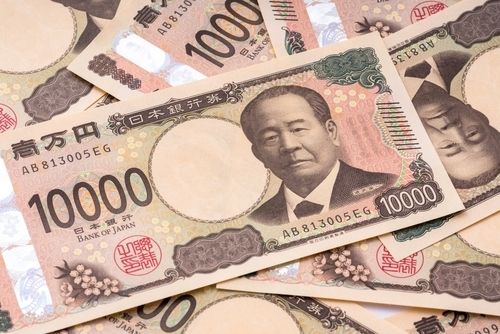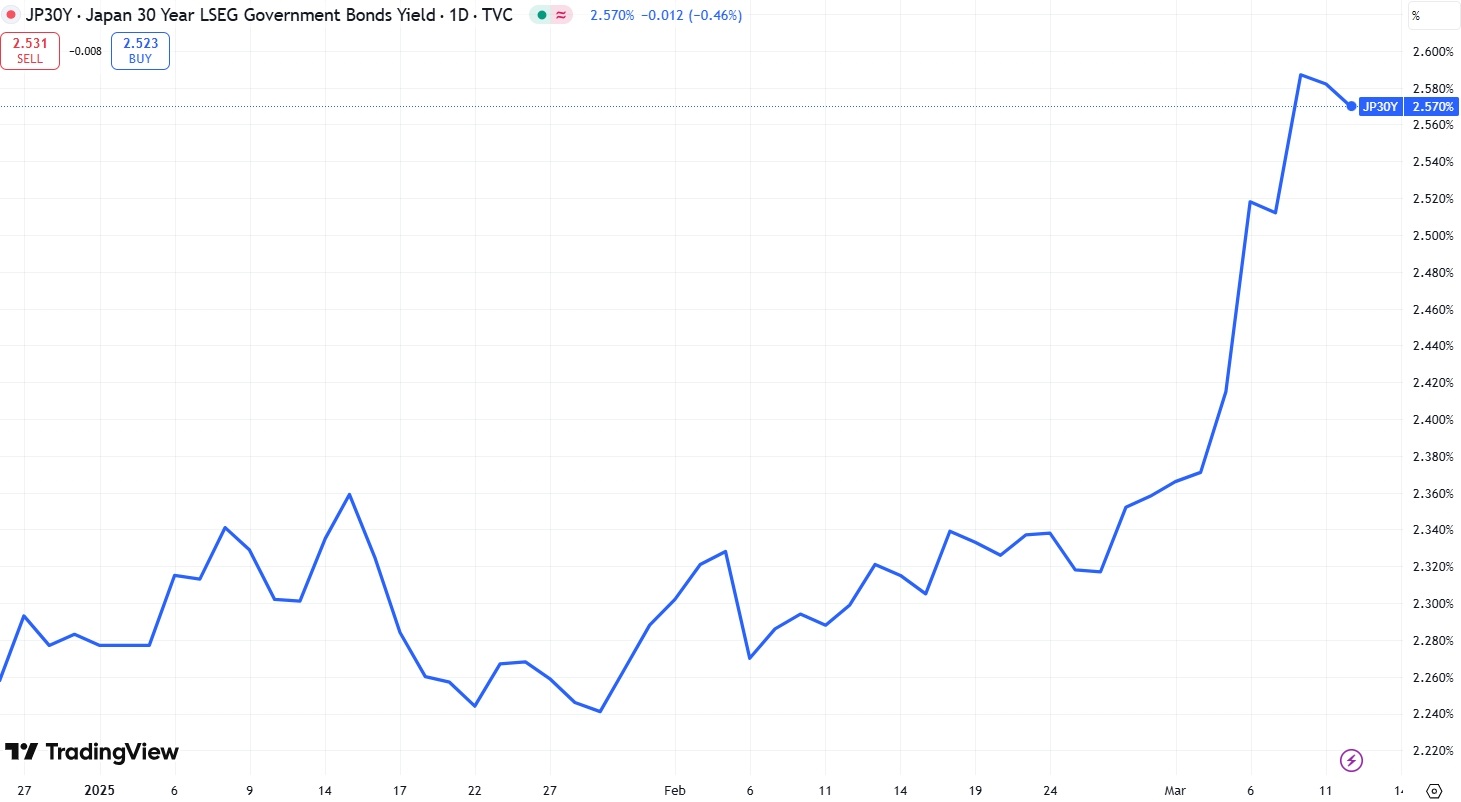Will Japanese Authorities Intervene as Japanese Government Bond Yields Soar to a 2006 High?
- Bitcoin Drops to $70,000. U.S. Government Refuses to Bail Out Market, End of Bull Market or Golden Pit?
- Gold rallies further beyond $5,050 amid flight to safety, dovish Fed expectations
- Bitcoin Bottom Debate: $70,000 or $50,000?
- A Crash After a Surge: Why Silver Lost 40% in a Week?
- Bitcoin Slips Below 75,000 Mark. Will Strategy Change Its Mind and Sell?
- Bitcoin Rout. Bridgewater Founder Dalio Publicly Backs Gold.

TradingKey - Japan's spring wage negotiations (Shunto) and inflation rate continue to bolster the prospects of the Bank of Japan raising interest rates. Following the 10-year Japanese government bond yield rising to its 2008 high, the yield on 30-year Japanese government bonds has also climbed to a nearly 20-year high.
On Wednesday, March 12th, the yield on 30-year Japanese government bonds rose by 3.5 basis points during intraday trading to 2.615%, the highest level since 2006. Currently, this long-term bond yield stands at 2.57%.

[Chart of the Yield of 30-year Japanese Government Bonds, Source: TradingView]
Experts from Sumitomo Mitsui Financial Group recently stated that as long as the US economy does not enter a recession, the Bank of Japan may raise its policy interest rate from the current 0.5% to 1% this year. If the economic trend continues, the Bank of Japan may raise the benchmark interest rate to 2%, the highest level in 30 years.
This analyst's view on interest rates is more "hawkish" than the market consensus. A Bloomberg survey shows that economists expect the terminal interest rate in Japan to reach 1.25%.
The BoJ will announce its new interest rate decision on March 19th, and the market unanimously believes that the interest rate will remain unchanged at this meeting. According to a Bloomberg survey, approximately 48% of the respondents expect an interest rate hike in July.
Regarding the continuous rise in Japanese government bond yields, the Japanese authorities are attempting to ease external concerns.
Japan's Minister of Finance believes that the rise in interest rates will have both positive and negative impacts on the economy, rather than just negative shocks such as rising debt costs or a slowdown in economic activities.
Kazuo Ueda, Governor of the Bank of Japan, stated that the upward trend in Japan's benchmark interest rate since last year reflects the market's views on the economy and inflation, and there is not a significant gap between the Bank of Japan's views and those of the market. He added that only a sudden exceptional spike might warrant action.
Read more
* The content presented above, whether from a third party or not, is considered as general advice only. This article should not be construed as containing investment advice, investment recommendations, an offer of or solicitation for any transactions in financial instruments.





